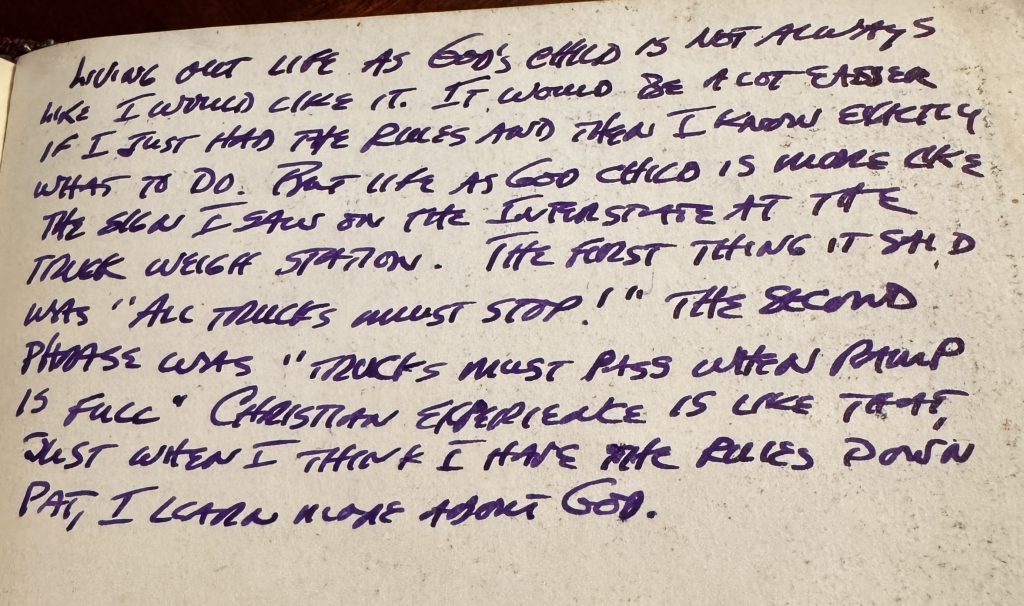
Aging is the most difficult task I’ve ever undertaken…pursuing holiness is a close second…
Phoenix Preacher
Prayer
God, lover of life, lover of these lives,?
God, lover of our souls, lover of our bodies, lover of all that exists:
It is your love that keeps it all alive….
May we live in this love.?
May we never doubt this love.?
May we know that we are love,?
That we were created for love,?
That we are a reflection of you,?
That you love yourself in us and therefore we are perfectly lovable.?
May we never doubt this deep and abiding and perfect goodness.?
We are because you are.
Richard Rohr
Peace
Perhaps, there is no definitive opposite of peace to speak of, only its definitive absence. It is surely the case that no matter how many things a person might have, to have no peace is in a certain sense to have nothing. I do not mean to not have anything but to have precisely nothing: an inescapable void right at the center of everything else, like the billions of stars in our galaxy that all have a supermassive black hole churning at the center. It is indeed the absence of peace that sets much of our world in motion, into commotion. Everyone is searching for its presence (or running from its absence) but more often than not search (or run) in vain. The absence of peace cannot be filled with any substitute presence any more than a black hole can be filled with starlight. It’s like the absence of a person. The only thing that can fill the absence of a person is that same person’s presence. There is no replacement for peace.
The opposite of peace is godlessness, in a literal sense. In the words of Karl Barth, “The enterprise of the No-God is avenged by its success.” So if you want to find peace, you have to go straight to the source. There is no replacement for God.
Jeremy Spainhour
Words for the Belovéd
And this is the consolation-that the world doesn’t end, that the world one day opens up into something better, and that we one day open up into something far better.
Maybe like this: one morning you finally wake to a light you recognize as the light you’ve wanted every morning that has come before. And the air itself has some light thing in it that you’ve always hoped the air might have. And One is there to welcome you whose face you’ve looked for during all the best and worst times of your life.
He takes you to himself and holds you close until you fully wake. And it seems you’ve only just awakened, but you turnand there we are, the rest of us, arriving just behind you.
We’ll go the rest of the way together.
Scott Cairns
Students of God
…no student of God, no believer in God or worshiper of Him, has any interest in remaining at the level of third-person knowledge, that is, questions and facts about God. What makes God God is his qualitative unlikeness to all other objects of study, what theologians call His transcendence.
God is incorporeal (not a body), immaterial (not made of matter), invisible, eternal, and infinite. He cannot be studied in a lab, placed in a petri dish, or spied through a telescope. What we know of Him we know by inference or by revelation: by reasoning from effects in the world, tracing them to their ultimate cause in Him, or by receiving what He has to say about Himself, if He so chooses.
Brad East
Notation in the back of my old Bible (circa 1999)

Oh God, our heavenly Guide, as finite creatures of time and dependent creatures of Thine, we acknowledge Thee as our sovereign Lord. Permit freedom and joys thereof to forever reign throughout our land. May we as klansmen forever have the courage of our convictions that we may ever stand for Thee and our great nation. May the sweet cup of brotherly fraternity ever be ours to enjoy and build within us that kindred spirit which will keep us unified and strong. Engender within us that wisdom kindred to honorable decisions and the Godly work. By the power of Thy infinite spirit and the energizing virtue therein, ever keep before us our oaths of secrecy and pledges of righteousness. Bless us now in this assembly that we may honor Thee in all things, we pray in the name of Christ, our blessed Savior. Amen.
Prayer of Sam Bowers, KKK Grand Chaplin, on June 7, 1964 at Boykin Methodist Church near Raleigh, Mississippi.
STLL ON THE JOURNEY